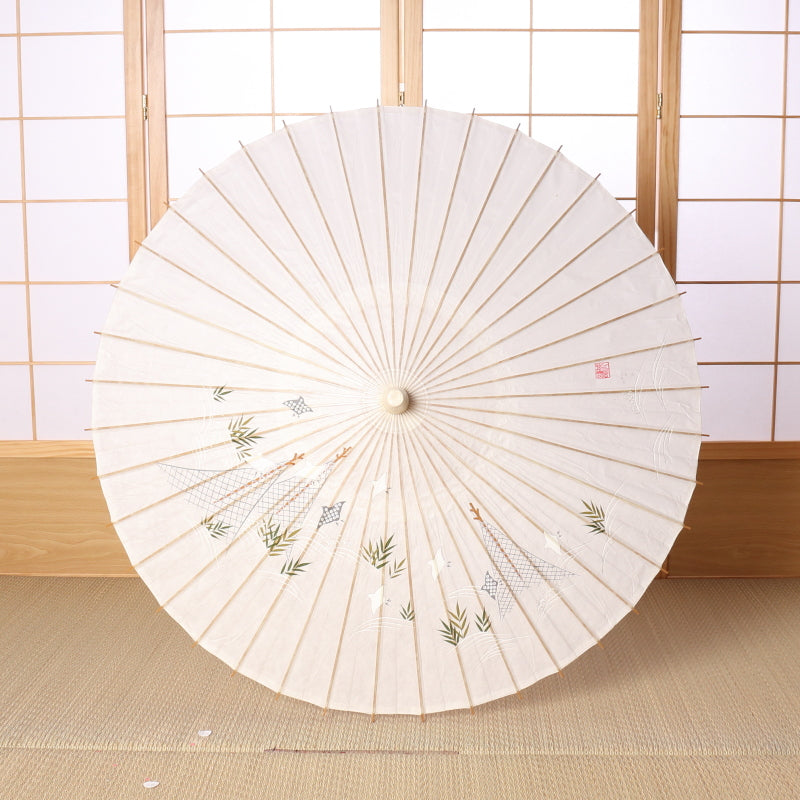
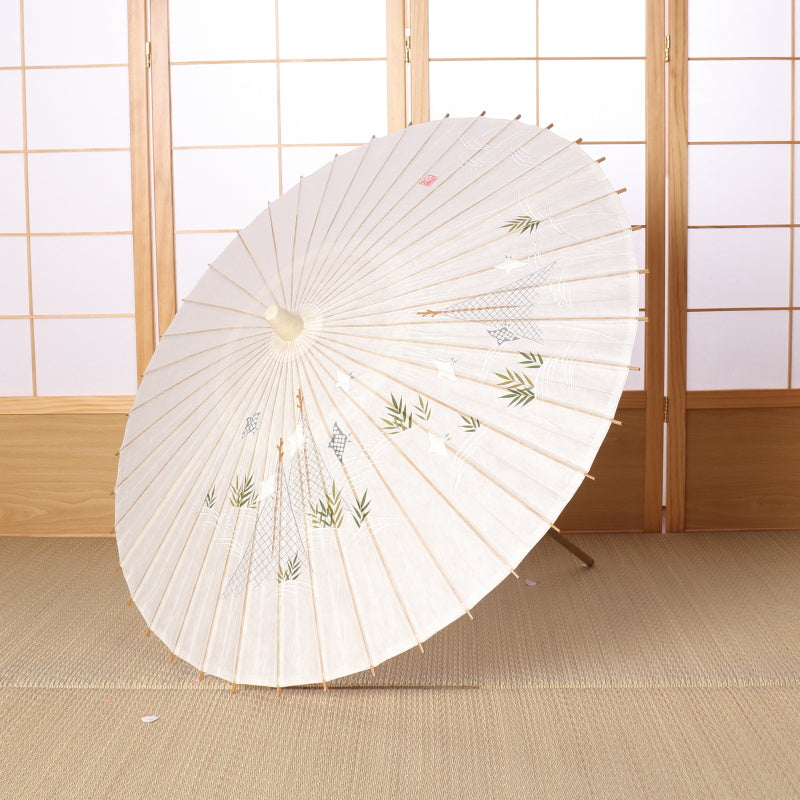
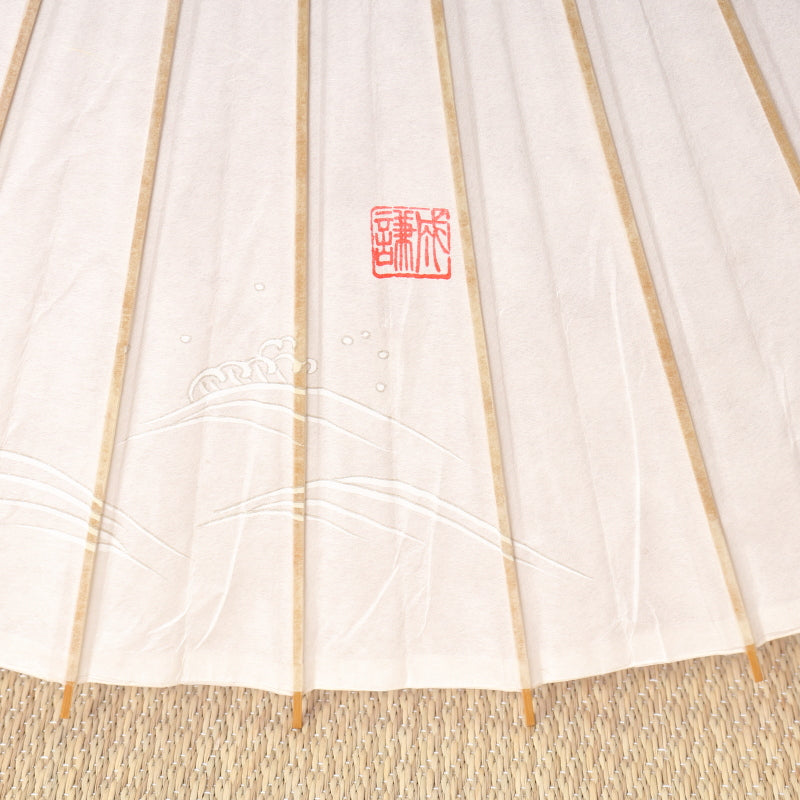
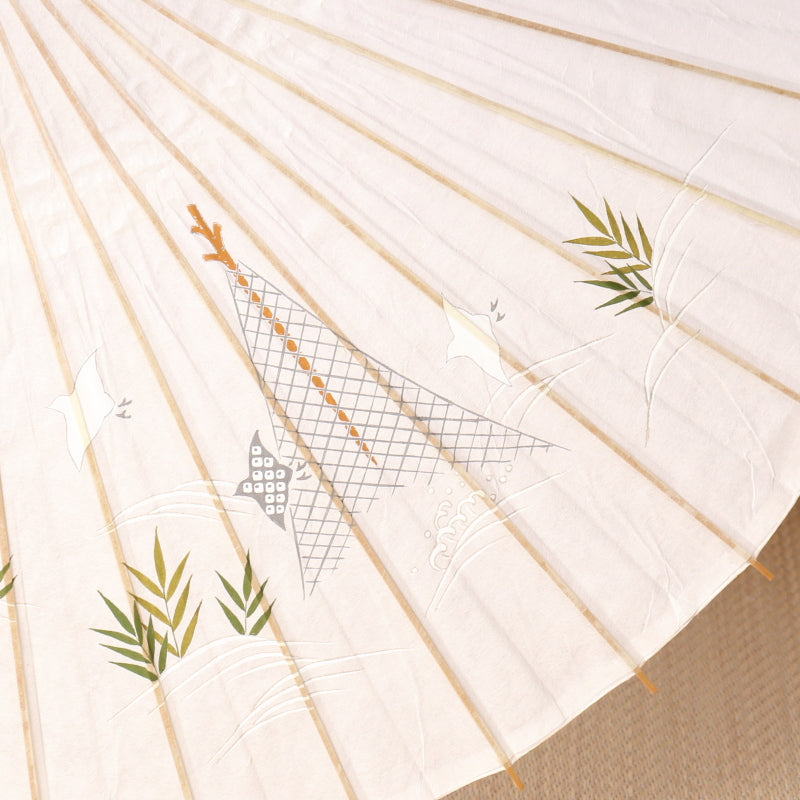
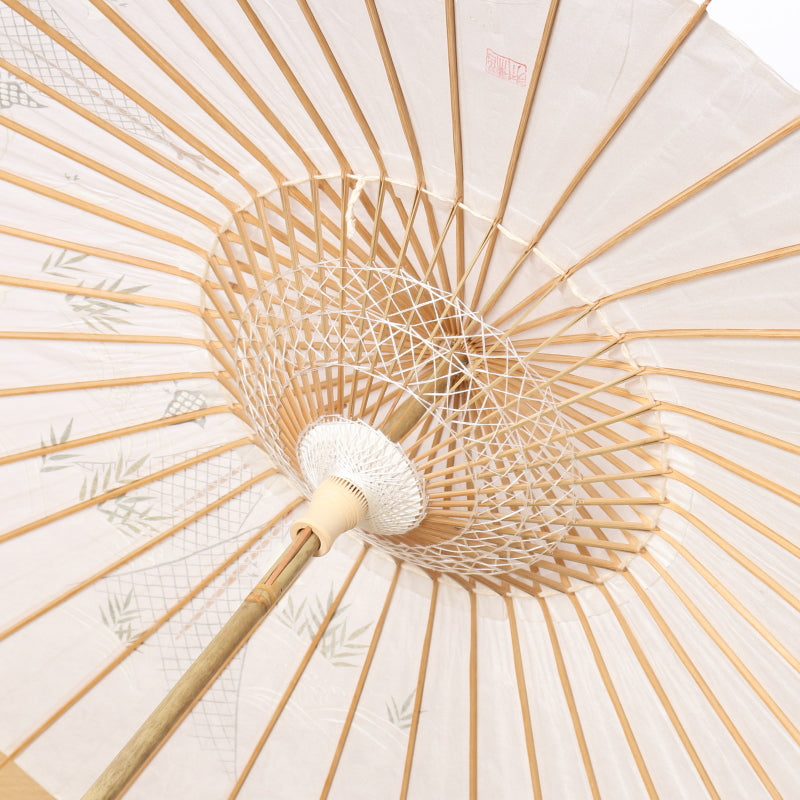
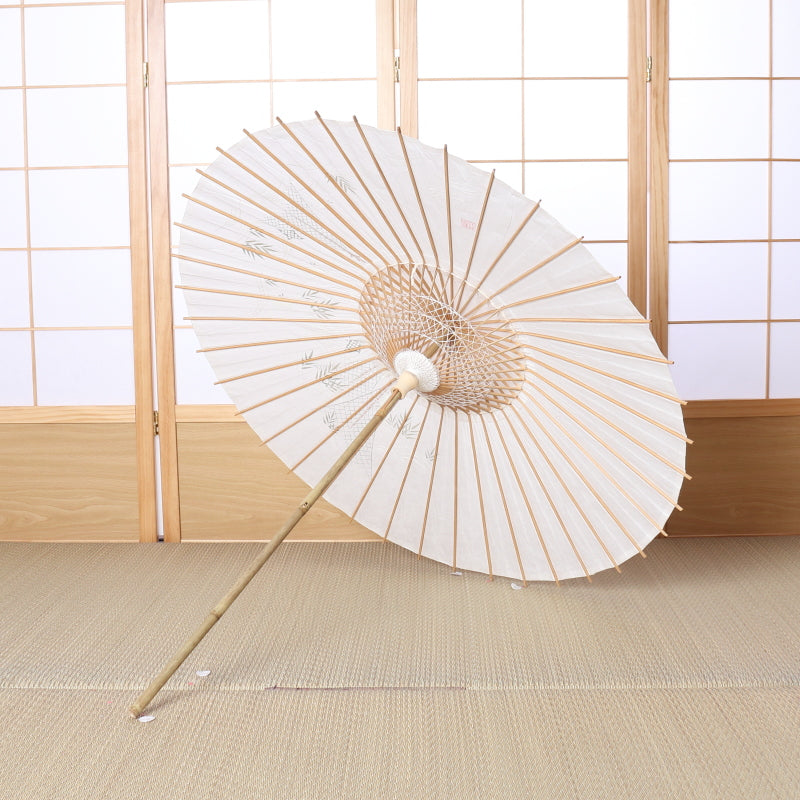
Chidori in the Aboshi Landscape / Hand-painted Kyo-yuzen
Nariken, a craftsman who produces authentic Kyo-Yuzen with a sincere attitude toward craftsmanship, and Tsujikura, which makes Japanese umbrellas to pass on the ancient traditional culture of Japan to future generations, have collaborated to create this product.
The most important part of kimono making is the underpainting.
A draftsman who has been drawing various patterns at Nariken for 30 years has drawn classical patterns on Japanese paper that will be used as a Japanese umbrella.
Japanese umbrella craftsmen continue to make purely domestic Japanese umbrellas with the mission of preserving the ancient Japanese manufacturing method and passing it down to the next generation.
Kyo-Yuzen draftsmen and Japanese umbrella craftsmen.
The combination of the earnest attitude toward craftsmanship and the skills of the artisans has resulted in the hand-painted Kyo-Yuzen Japanese parasol.
■Chidori pattern
The plover called “Kissho pattern” is not a type of bird but a generic name for small birds that live near water and fly in flocks.
The “Nami Chidori” pattern is a combination of waves and plovers, which means “to overcome the stormy sea together.”
It is said to be an auspicious pattern for marital bliss and family safety.
Chidori also has the meaning of “winning luck” and “achieving goals,” and both are well-known as auspicious patterns.
■Aboshi Chidori
It is patterned with dried fishing and hunting nets and plover.
The plover is characterized by its three-toed feet, which allow it to walk quickly on sandy areas such as beaches.
The small, cute plovers came to be used as a pattern in clothing and furnishings from the Heian period (794-1192) onward.
The flocks of plovers flying in the surf were painted by Nariken’s draftsmen, stroke by stroke, carefully and painstakingly over time.
■Only one in the world
This product is hand-painted by a kimono draftsman and is therefore one-of-a-kind.
It is used as a Japanese parasol as a gift for an important person, as a gift to celebrate anniversaries such as Sanju(80th birthday), or as a Japanese interior decoration.
Material:Kyoto kurotani/Japanese traditional paper ‘washi’
Color:White/Pattern
Bone: Bamboo
Stretchers: 40
Shaft: Bamboo
Latch: Wooden
Length: About 80.5cm (about 31.69inch)
Diameter: About 82cm (about 32.3inch)
Weight:260g
Handling Method
How to Use the Wagasa
When you walk carrying the closed umbrella, please grasp the head of the Wagasa, or for Janome please grasp the cord on the head, and for Bangasa please hold the leather strings bound around the head.
How to Open the Wagasa
The Wagasa may be difficult to open due to the waterproof grease on the Washi. Please lightly grasp the bottom of the runner at the bottom inside the umbrella, and slowly and carefully push to the top to open the Wagasa.
About Shipping
Shipping outside Japan differs according to region and weight.
Place the item in your cart, choose the region and the details will become available.
In the case of one Wagasa (2kg including packaging):
¥3,100~ Asia (Korea, Singapore, Thailand, etc.)
Oceania (Australia, New Zealand, etc.)
¥3,500~ North America (USA, Canada, etc.)
Europe (UK, Italy, etc.)
¥5,700~ Europe (Russia, Iceland, etc.)
South America (Argentina, Peru, Brazil, etc.)
Middle East (United Arab Emirates, etc.)
English site payment is by US dollars.
After an order is received, products are shipped in about one week, and are delivered to the customer approximately one week following that.
Japanese Patterned Original Wagasa Bag
For each Japanese umbrella purchased, we will give you an original umbrella bag.
Unfortunately, we cannot accept requests for specific patterns. Thank you for your understanding. (The pattern in the image is an example.)


Overseas Customs & Import Duties
You are responsible for confirming that the product can be lawfully imported to the destination country.
When ordering from Tsujikura Online Shop, the recipient becomes the importer and must comply with all laws and regulations of the destination country.
Orders that are shipped to countries outside of Japan may be subject to import taxes, customs duties and fees levied by the destination country.
The recipient of an international shipment may be subject to such import taxes, customs duties and fees, which are levied once a shipment reaches your country.
Additional charges for customs clearance must be borne by the recipient; Tsujikura has no control over or relation to these charges and cannot predict what they may be.
Customs policies vary widely from country to country; please make sure you contact your local customs office for further information. When customs clearance procedures are required, delays can be caused beyond our original delivery estimates.
Choose options





